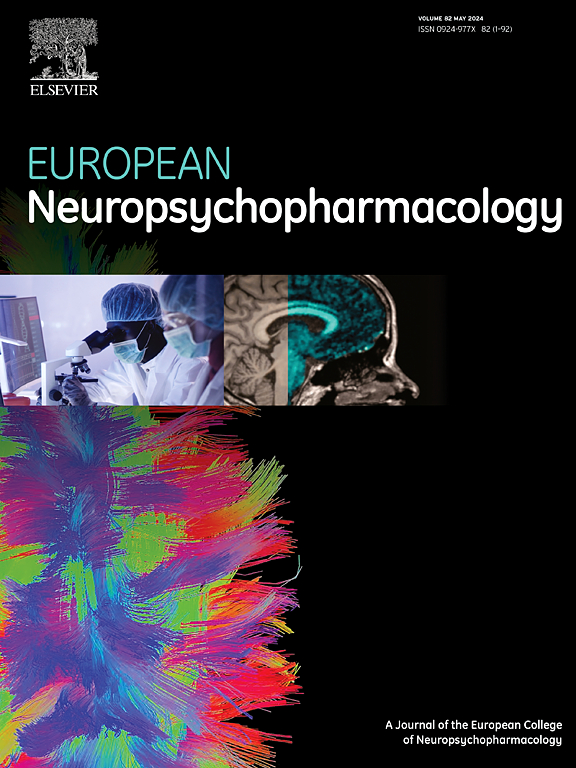EQUITABLE COLLABORATION BETWEEN HIGH-INCOME AND LOW- AND MIDDLE-INCOME COUNTRIES
IF 6.1
2区 医学
Q1 CLINICAL NEUROLOGY
引用次数: 0
Abstract
International collaborations between high-income countries (HICs) and low- and middle-income countries (LMICs) have become crucial in advancing global health, particularly within psychiatric research. These partnerships are instrumental in accelerating scientific discovery and enhancing public health; however, they also highlight significant equity and fairness challenges. Specifically, research partnerships often suffer from imbalances, such as "helicopter" research approaches by HICs and the exploitation or marginalization of LMIC researchers.
Through periodic online meetings held by members of the International Society for Psychiatric Genetics, they have shared their experience in these collaborations and identified gaps in current practices to better refine future collaborative efforts. From these discussions, we have outlined key considerations and strategies for planning, implementing, and disseminating collaborative research. Throughout the collaboration process, we identified potential challenges and opportunities, and provided recommendations to optimize the benefits of such partnerships.
Among our considerations we highlight that Equitable Collaboration begins with comprehensive stakeholder engagement, fostering a participatory environment that includes local communities, governments, and institutions from both HICs and LMICs. Planning and research design should be conducted inclusively emphasizing cultural sensitivity and contextual relevance. Training initiatives are also recommended to be implemented to empower local stakeholders to actively contribute to the research process. As the research progresses, close collaboration between HIC and LMIC researchers could facilitate knowledge exchange and equitable benefit distribution. Ideally, these results are translated into local health policy improvements, promoting sustainable development and empowerment in LMICs. Among potential challenges are differences in ethical research and data sharing frameworks across collaborating countries, inequality in research resources and infrastructure, reduced visibility of research performed in LMICs, which can significantly impact the research outcomes and their applicability, among others.
In conclusion, while global collaboration in psychiatric genetics presents complex challenges, it also offers substantial opportunities for impactful research and improved global mental health. By committing to careful planning, effective communication, ethical practices, and supportive policies, we can foster more equitable health outcomes worldwide.
高收入国家与中低收入国家之间的公平合作
高收入国家(HICs)与中低收入国家(LMICs)之间的国际合作对于促进全球健康,尤其是精神病学研究至关重要。这些合作关系有助于加速科学发现和提高公众健康水平;然而,它们也凸显了公平和公正方面的重大挑战。通过国际精神病学遗传学会成员定期举行的在线会议,他们分享了在这些合作中的经验,并找出了当前实践中的差距,以更好地完善未来的合作努力。通过这些讨论,我们概述了规划、实施和传播合作研究的主要注意事项和策略。在整个合作过程中,我们发现了潜在的挑战和机遇,并提出了优化此类合作效益的建议。在我们的考虑因素中,我们强调公平合作始于利益相关者的全面参与,营造一个包括高收入国家和低收入国家的当地社区、政府和机构在内的参与环境。规划和研究设计应具有包容性,强调文化敏感性和背景相关性。还建议开展培训活动,增强当地利益相关者的能力,使其能够积极促进研究进程。随着研究的进展,高收入国家和低收入国家研究人员之间的密切合作可促进知识交流和公平的利益分配。理想的情况是,这些成果能转化为当地卫生政策的改进,促进低收入国家的可持续发展和赋权。潜在的挑战包括:合作国家之间在伦理研究和数据共享框架方面的差异、研究资源和基础设施的不平等、低收入国家研究的能见度降低,这些都会极大地影响研究成果及其适用性。通过认真规划、有效沟通、道德实践和支持性政策,我们可以在全球范围内促进更公平的健康结果。
本文章由计算机程序翻译,如有差异,请以英文原文为准。
求助全文
约1分钟内获得全文
求助全文
来源期刊

European Neuropsychopharmacology
医学-精神病学
CiteScore
10.30
自引率
5.40%
发文量
730
审稿时长
41 days
期刊介绍:
European Neuropsychopharmacology is the official publication of the European College of Neuropsychopharmacology (ECNP). In accordance with the mission of the College, the journal focuses on clinical and basic science contributions that advance our understanding of brain function and human behaviour and enable translation into improved treatments and enhanced public health impact in psychiatry. Recent years have been characterized by exciting advances in basic knowledge and available experimental techniques in neuroscience and genomics. However, clinical translation of these findings has not been as rapid. The journal aims to narrow this gap by promoting findings that are expected to have a major impact on both our understanding of the biological bases of mental disorders and the development and improvement of treatments, ideally paving the way for prevention and recovery.
 求助内容:
求助内容: 应助结果提醒方式:
应助结果提醒方式:


